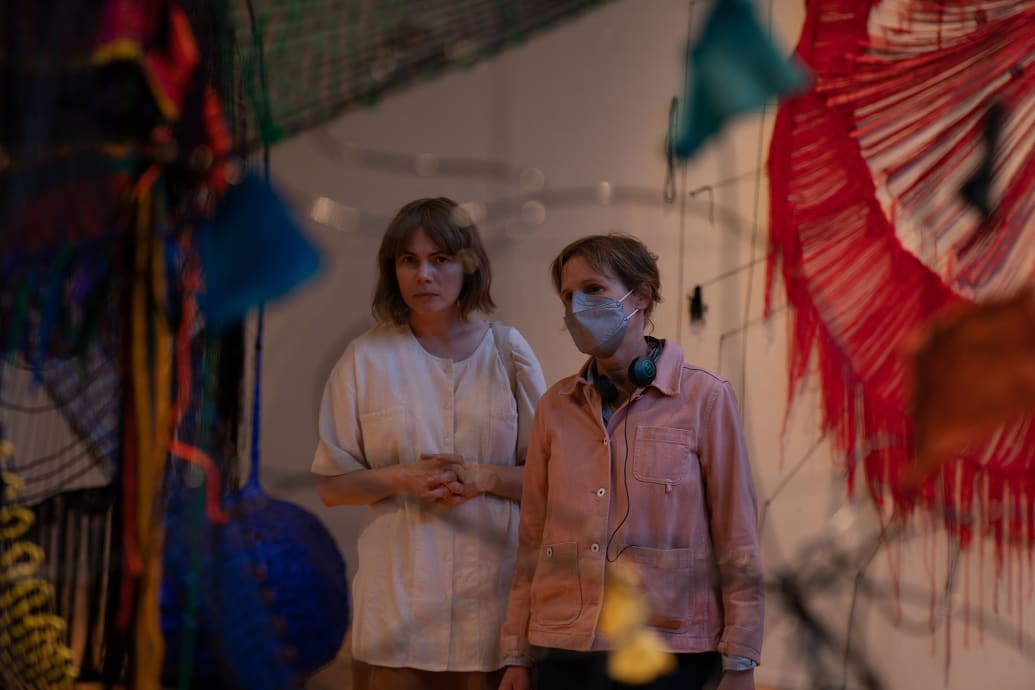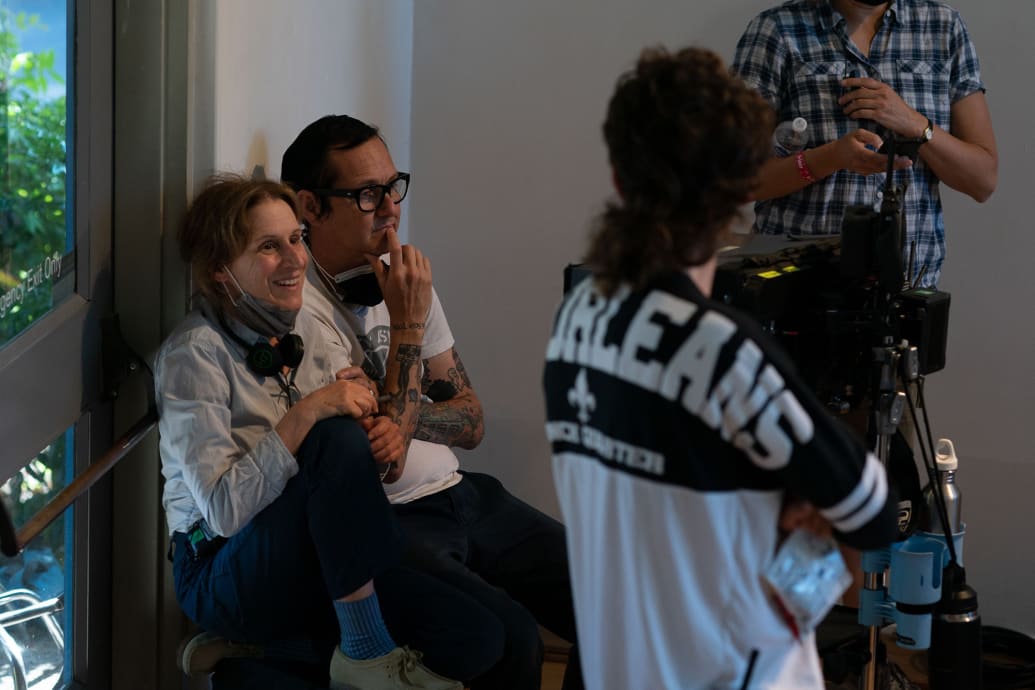Showing Up is acclaimed director , where three of your stars were nominated for awards: Michelle Williams (The Fabelmans), Hong Chau (The Whale), and Judd Hirsch (The Fabelmans). André 300 of Outkast also plays a faculty member. Do you ever think about whether your bigger-name actors will distract audiences from the story?
This is America, and the way you get films financed in America is largely because of the presence of the people in your movie. I’m lucky enough to work with these actors. They’re super talented and good people to work with. [But this is] not England or something—a Mike Leigh film’s not gonna get made in America.
A lot of the people I work with, I’ve worked with over and over again, and I’m happy for them, and I’m glad I don’t have to live through all that. I’m getting a free ride, because I don’t have to live through all that Oscar stuff, and somehow I can just be on the coattails of whatever good fortune my actors have. [But] I can’t think about all that outside stuff. That’s why I teach, and I make films with a small community of people.
I know what you mean, when someone you don’t recognize is just gonna be the person you know. It’s easier for them to be the character, because you don’t associate them with anything else. But that’s not really how films get made in America.

All of the actors’ characters feel very lived-in—particularly Judd Hirsch as Lizzy’s chaotic artist father. He has a big hand in establishing the film’s tone as more comedic than your usual work. How much did you lean on him to cultivate that sense of humor?
We knew we were making something that had humor in it, and that was fun to do. Sometimes it’s in the writing, and sometimes it’s in the performance or in the delivery. Sometimes it’s in the cut. It’s not in all places at once. And I still wanted to make a film where things were really at stake.
But Judd can make things funny in different ways, depending on what take he’s on. I was really impressed with, um, how many different ways he could do a scene, where he could make something funny and change those spots of where [the jokes are]. That was super interesting because there’s just so many different ways that things could be played.
Judd is kind of playing in his own orbit, in his own space, so it makes what he’s doing a little different. It was really fun in the editing room, just getting to choose which version to use.
Yeah, I can imagine how funny it was to work on that one scene, for instance, where Lizzy goes to visit her dad at his house. He just has that random shoeless couple crashing on the couch.
That was a good one. I mean, Amanda Plummer, oh my God. And Matt Malloy—those guys are really good together. You could just film those guys all day long. Even when Amanda Plummer’s in the background, she’s up to so many things. It’s really, really fun.
Yeah, that whole subplot was so fun—every time that pair appeared on scene, everyone in the theater would just start laughing. It was like, “What is going on in this part of the movie? What is up in that house?”
I just wanted to sneak in one last question. Your work is often considered part of the “slow cinema” movement. That term is controversial, but this year’s Sight and Sound poll named Chantal Akerman’s Jeanne Dielman, 23 quai du Commerce, 1080 Bruxelles—a big hallmark of that kind of film—the greatest movie of all time. Do you think the general impression of slower-paced films has changed, since the beginning of your career?
Jeanne Dielman’s a important film for a lot of people, and myself included. … Obviously the world’s faster, faster, faster, faster. But pacing works differently in different films. It’s only [compared to] what it’s next to, right? … Nothing really stands alone. [Calling something slow- or fast-paced is] like you’re flicking through a book.
But some things that we’re calling slow cinema, what we’re really talking about is a 30-second shot, which is, to my mind, not that slow. It’s just that the world is so sped-up.

